Self-Hosted Server Panels: A Comparison of the Best Options Available
Check out this best self-hosted server panel alternatives to host your project and keep control.
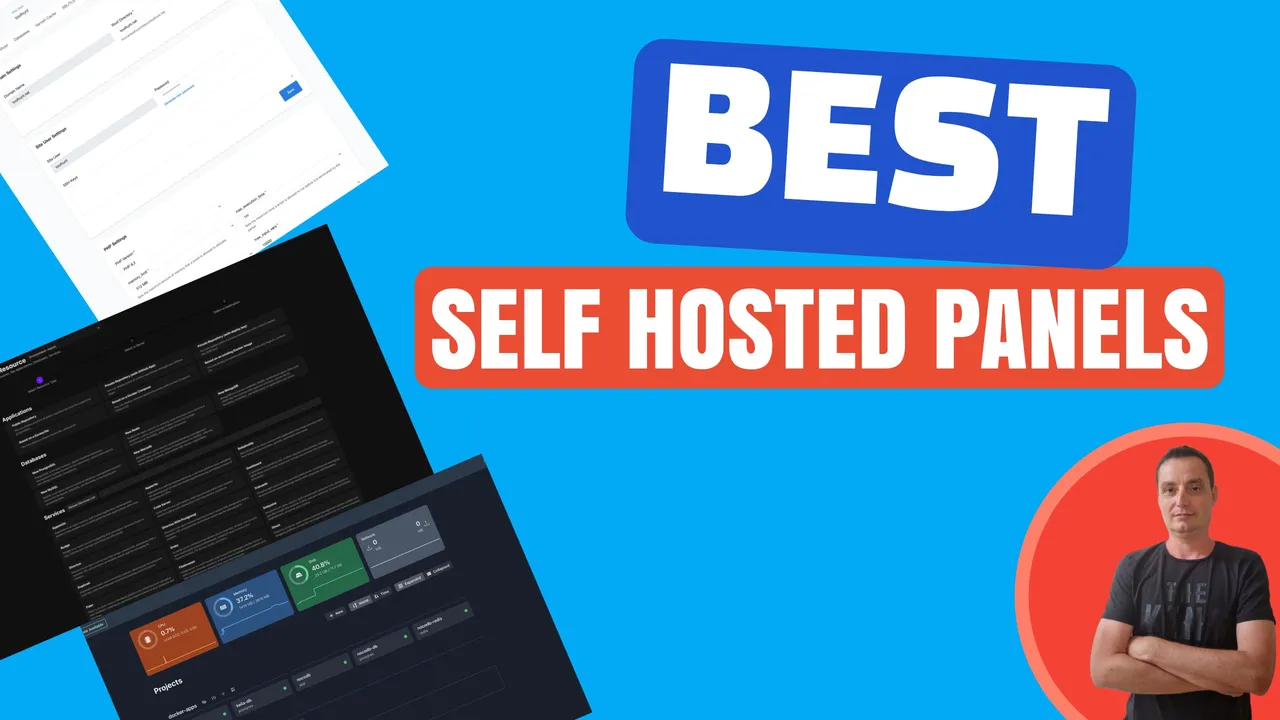
Managing server environments can be a complex task, but with the right self-hosted server panel, it’s a breeze. I’ve explored a variety of panels that promise to simplify this process, and I’m excited to share the cream of the crop with you.
Whether you’re a developer, system admin, or a tech enthusiast, you’ll want a server panel that’s robust, user-friendly, and reliable. In this article, I’ll walk you through the best self-hosted server panels that’ll help you host your projects efficiently and with greater control.
Self-Hosted Panels and How They Can Help You
Discovering the right tools for managing server environments can be akin to finding a needle in a haystack. That’s where self-hosted server panels come into play, and I’ve found they’re an absolute game-changer for efficiency and control. These panels simplify the complex task of managing servers, and I’m here to share how they can revolutionize your workflow.
What’s a Self-Hosted Server Panel? In essence, a self-hosted server panel is a dashboard that lets you oversee all components of your server without the need for command-line expertise. Imagine having the power to control databases, domains, email accounts, and more, all from one central user interface.
Streamline Server Tasks With a self-hosted server panel, you’ll have the tools to:
- Configure and manage websites effortlessly
- Create databases with just a few clicks
- Monitor server health and resources in real-time
- Automate backups for peace of mind
- Deploy applications with just one click
- Host CI/CD projects for automatic deploy
Gone are the days of toggling between various systems to manage your servers. These panels consolidate the essential tools, making server management a breeze.
If you are interested to see some free cool open source self hosted apps you can check toolhunt.net self hosted section.
In case you are interested to monitor server resources like CPU, memory, disk space you can check: How To Monitor Server and Docker Resources
Enhanced Security and Control One standout advantage of self-hosted panels is the high level of security they offer. Hosting your own panel means you’re not sharing resources with other users, which minimizes potential vulnerabilities. Moreover, you have the autonomy to implement your own security measures that align with your project’s requirements.
My experience has shown me that self-hosted server panels are invaluable for anyone looking to steer their projects with precision and confidence. They’re designed to cater to both novices and professionals, enabling you to focus on innovation rather than intricate server management details.
As we delve further, I’ll unveil the top self-hosted server panels that have impressed me with their robust features, user-friendly interfaces, and steadfast reliability.
What features should be considered while choosing a self-hosted server panel?
-
When choosing a self-hosted server panel, there are several important features to consider. One of the key factors is the user interface. A user-friendly and intuitive interface can greatly simplify the management of your server and make it easier to navigate through various settings and options. Look for a panel that offers a clean and organized interface, with clear labels and easy-to-understand controls.
-
Security is also a top priority when it comes to self-hosted server panels. Make sure the panel you choose has robust security measures in place to protect your server and data. Look for features such as two-factor authentication, SSL/TLS support, and regular security updates. Additionally, consider whether the panel allows you to easily manage firewall rules and access controls to further enhance the security of your server.
-
Scalability is another important consideration. As your projects grow and your server requirements increase, you’ll want a panel that can scale with your needs. Look for a server panel that supports easy scaling of resources, such as adding additional servers or increasing the capacity of existing ones. This will ensure that your projects can continue to run smoothly as they expand.
-
Another crucial feature to consider is the level of customization and flexibility offered by the server panel. Different projects may have unique requirements, so it’s important to choose a panel that allows you to tailor the server settings to your specific needs. Look for options to configure security settings, manage user accounts, and customize server resources such as CPU, RAM, and storage.
Best Self Hosted Panels For PHP Applications (cPanel Alternatives)
Managing PHP applications can be a breeze with the right server panel. I’ve put several tools through their paces and among them, two panels stood out not just for their PHP support but for their comprehensive functionality as well. Let’s dive into the specifics of each.
CloudPanel
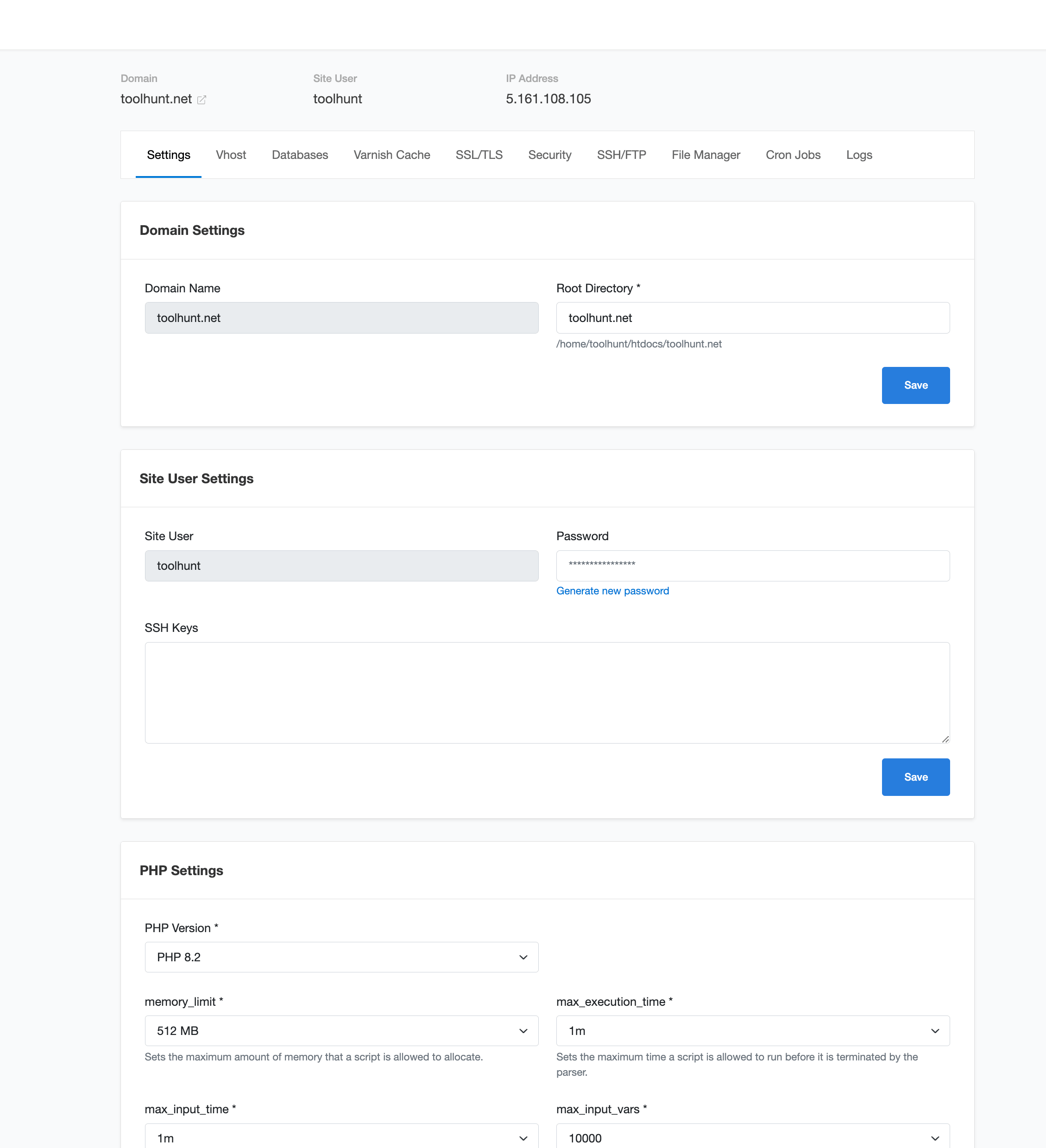
CloudPanel is one of my top picks when it comes to self-hosted server panels specifically designed for PHP applications, as a web server it uses NGINX.
CloudPanel it is using the below tech stack under the hood:
- NGINX as the web server
- MySQL, MariaDB as the relational database
- Redis as the in-memory data store and cache
- Varnish Cache as the HTTP accelerator
It’s not just an ordinary control panel; it’s a powerhouse that provides an incredible set of features tailored for a smooth PHP development experience.
- One-Click Installations: CloudPanel offers one-click installations for popular PHP applications. This feature streamlines the deployment process and significantly reduces setup time.
- Free SSL Certificates: Security is effortless with CloudPanel’s built-in support for Let’s Encrypt, providing free SSL certificates for your domains.
- PHP Management: Fine-tune PHP settings for each site directly from the panel. The ability to adjust memory limits, upload sizes, and execution times on-the-fly is invaluable. It offers multiple PHP versions.
- Intuitive Interface: The user interface is clean and efficient, making it easy to navigate and manage your servers even if you’re not deeply technical.
- File Management: It has a file manager that allows users to upload, edit, delete, and manage files and folders
- It has advanced security features, such as site isolation, firewall, IP and bot blocking, basic authentication, and two-factor authentication
- It supports multiple application types, such as PHP, Node.js, Python, and static websites or it can be used as a reverse proxy.
- Backups: It has the options to backup your websites and databases to external locations with Rclone
The responsiveness of CloudPanel’s interface and the minimal resource footprint make it an ideal choice for developers who want to maintain efficiency without sacrificing functionality. I am using it as a cPanel alternative to host all my WordPress Websites.
Below are some tutorials that can get you started:
- How To Install CloudPanel and Host Node.js Apps
- CloudPanel Install on Hetzner With WordPress Setup
- How To Secure CloudPanel And Have a Better Sleep
- How to Safely Update CloudPanel to The Last Version
- Setup CloudPanel with Docker and Dockge
I have created also a course that can get you started, this is how much I like CloudPanel: Master CloudPanel Course
CloudPanel does not come with an email system so you can create email accounts on it, just wanted to let you know.
CyberPanel
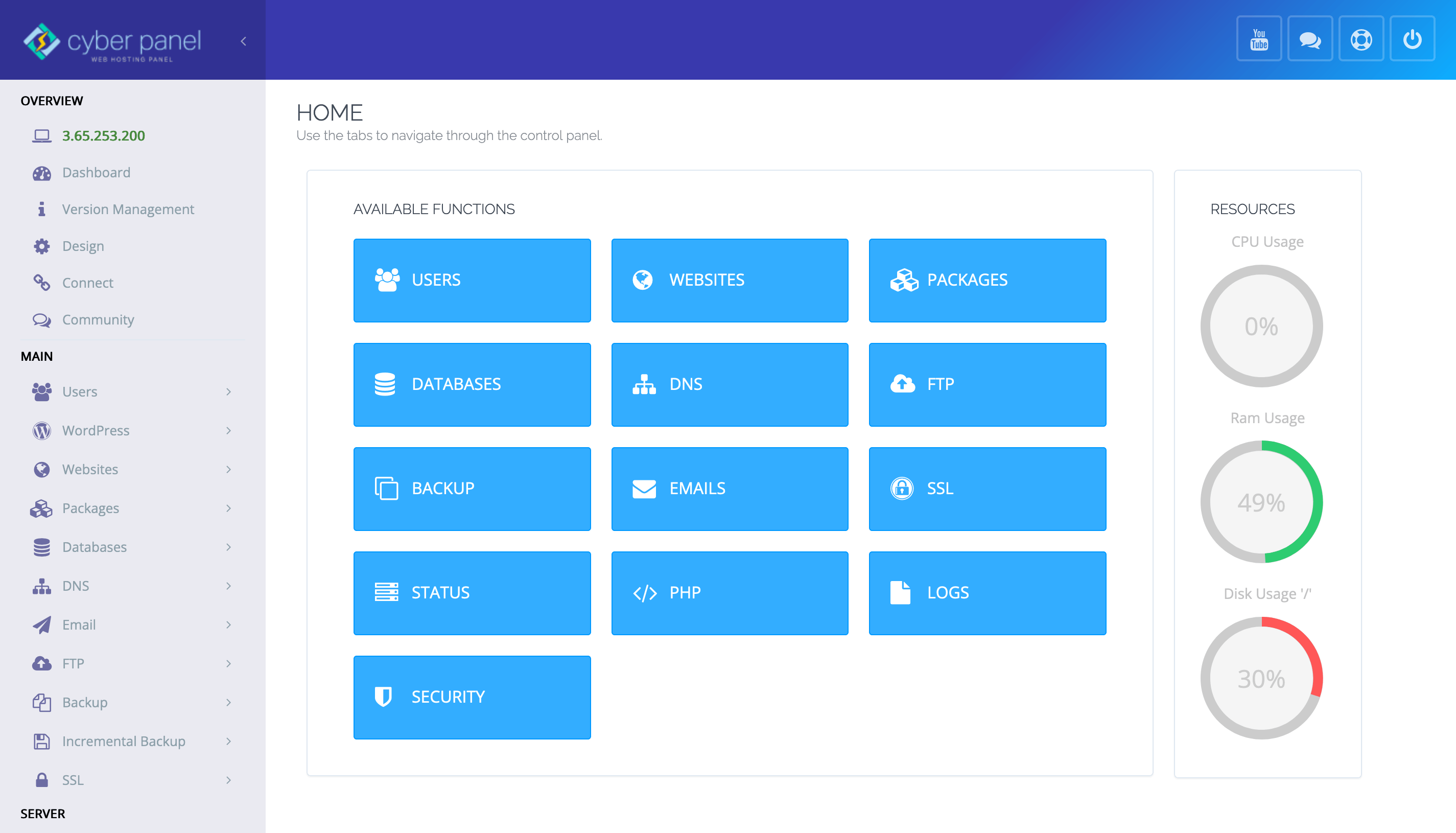
On the other hand, CyberPanel stands out with its integration of LiteSpeed technology. For developers and businesses looking for performance, CyberPanel delivers that in spades, thanks to its use of LiteSpeed Web Server.
CyberPanel it is using the below tech stack under the hood:
- LiteSpeed as the web server
- MariaDB as the relational database
- Redis as the in-memory data store and cache
- Email Setup
- Docker Manager
Top Features of CyberPanel:
- LiteSpeed Server: With CyberPanel’s LiteSpeed support, PHP applications benefit from unparalleled performance and reduced server load, ensuring your applications run at their best.
- Auto Backups: Your data’s safety won’t keep you up at night—CyberPanel features automatic backups to remote destinations, so you’re always a step ahead of any potential data loss.
- Built-in Firewall: Security is a breeze with the included firewall, which helps in thwarting potential security threats before they hit your PHP applications.
- File Manager: File Manager to manage your files
- Docker Manager: CyberPanel comes with a Docker Manager, scaling up your PHP applications becomes as simple as clicking a button.
- Email Server: CyberPanel allows you to host a full email server
- DNS: It comes with a DNS manager for your domain
- User Management: It has advanced package manager and user managemt as you would see in Cpanel for instance.
Final Word on PHP Apps Panels
Identifying the ideal self-hosted server panel for PHP applications depends on your specific needs. However, with CloudPanel’s comprehensive feature set and CyberPanel’s LiteSpeed technology, both offer compelling reasons to consider them for hosting and managing your PHP projects. Each brings unique advantages to the table, ensuring your PHP applications run smoothly and securely.
Deciding which panel fits your workflow best could depend on whether you value the one-click simplicity and clean interface of CloudPanel or the performance-optimized LiteSpeed integration that CyberPanel boasts. Consider the size of your projects, the scalability you need, and how critical performance is for your applications before making the final call.
Best Heroku & Netlify Alternatives for CI/CD and Docker Apps
While Heroku and Netlify are popular choices for CI/CD and Docker applications deployment, they are not the only options out there. Numerous self-hosted platforms are providing similar functionalities, but with added benefits such as cost-effectiveness, customizability, and complete control over your data. In this section we are going to see some of the best panels that you can use for your apps. I have used the first 2 so I can say they are some of the best.
EasyPanel
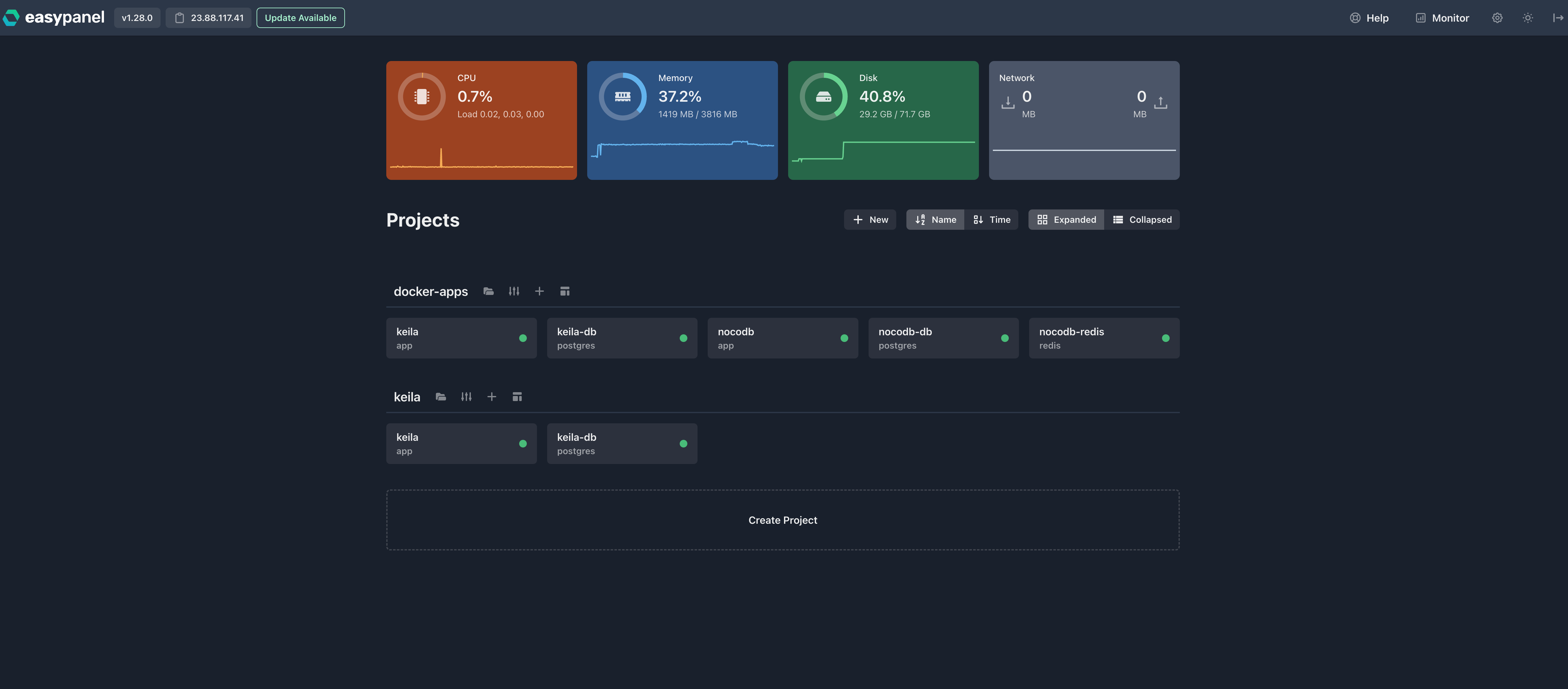
EasyPanel is a web-based server control panel that allows you to deploy and manage applications, databases, and SSL certificates with ease. It supports various programming languages and frameworks, and uses Docker and Cloud Native Buildpacks to create and run containers. It also provides web consoles, logs, templates, backups, and more features to help you manage your server without fighting the terminal. Easypanel.io is simple, powerful, and reliable. It has received positive feedback from many users who appreciate its flexibility and convenience.
Here’s why I find it worth considering:
- Effortless Setup: EasyPanel is designed for a quick and hassle-free installation process. You won’t waste time on tedious configurations.
- User-Friendly Interface: The dashboard is straightforward, making it easy to manage deployments and visualize your projects.
- CI/CD Automation: With EasyPanel, setting up automated pipelines for your applications is a breeze, which helps improve development efficiency.
- Docker Integration: One of the strongest features is its native support for Docker, providing the flexibility to containerize your applications with ease.
- Integrates with Github: You can push your code to Github and Easypanel.io will automatically build and deploy it for you.
- Offers easy templates: You can use ready-made templates to deploy popular applications such as n8n, plausible anatitics, SuiteCRM, etc. in seconds.
- Easy Database Create: You can create databases with ease like: MySQL, MariaDB, Postgres, MongoDB Redis
- Logs: It’s providing logs in the interface
- Backups
EasyPanel is a great panel that can help you host your project easily, below are some of the articles I have created:
- Easypanel.io: A Modern Hosting Panel for Applications and Databases
- How to Deploy Astro on Your VPS with EasyPanel
- How to Launch Your Own Newsletter Platform with Keila and Docker
Coolify
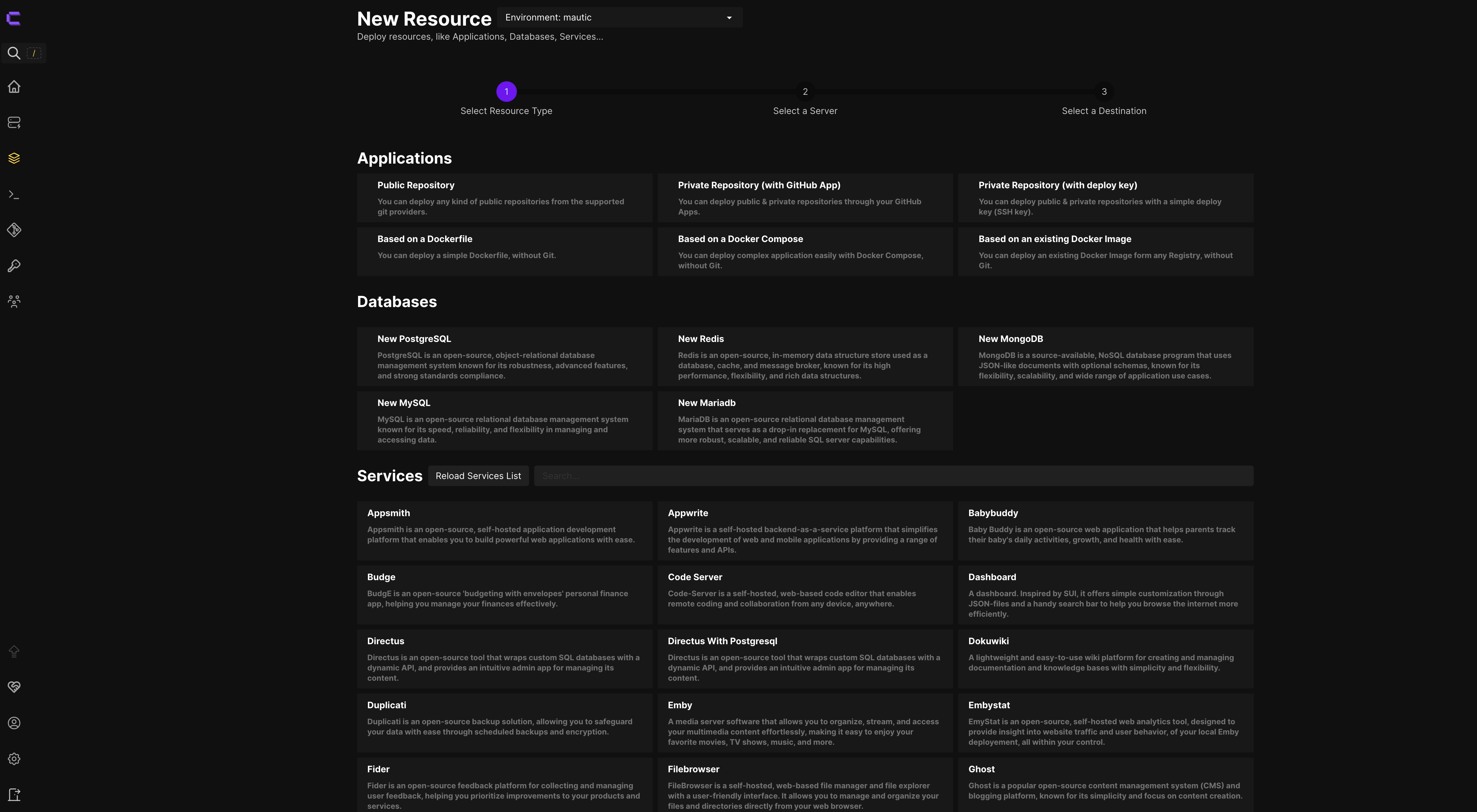
Coolify is an open-source and self-hosted Heroku alternative that offers users the same features as Heroku, such as automated deployment, scalability, and easy configuration, but with the added benefit of being self-hosted.
Coolify goes through a transformation now as version 4 is released where everything is redisigned.
- It allows users to deploy their Node.js and static sites just by pushing code to git.
- It supports one-click deployments of various databases, such as MongoDB, MySQL, PostgreSQL, and Redis.
- It has a hassle-free installation process that installs the all-in-one infrastructure with one command.
- It has a hassle-free upgrade process that updates the system with one click.
- It automatically backs up the databases to any S3 compatible solution.
- It automatically monitors the configured servers and deployed resources and notifies the users if something goes wrong.
Coolify is offering similar functionalities like easypanel but it has fewer apps to choose from now(you can deploy easily your own apps with docker-compose) and no docker UI stats and command executions.
Below are some articles I have done in the past for Coolify v3:
- Coolify Install A Free Heroku and Netlify Self-Hosted Alternative
- How To Deploy Uptime Kuma With One Click
- How To Install Plausible With One Click
CapRover
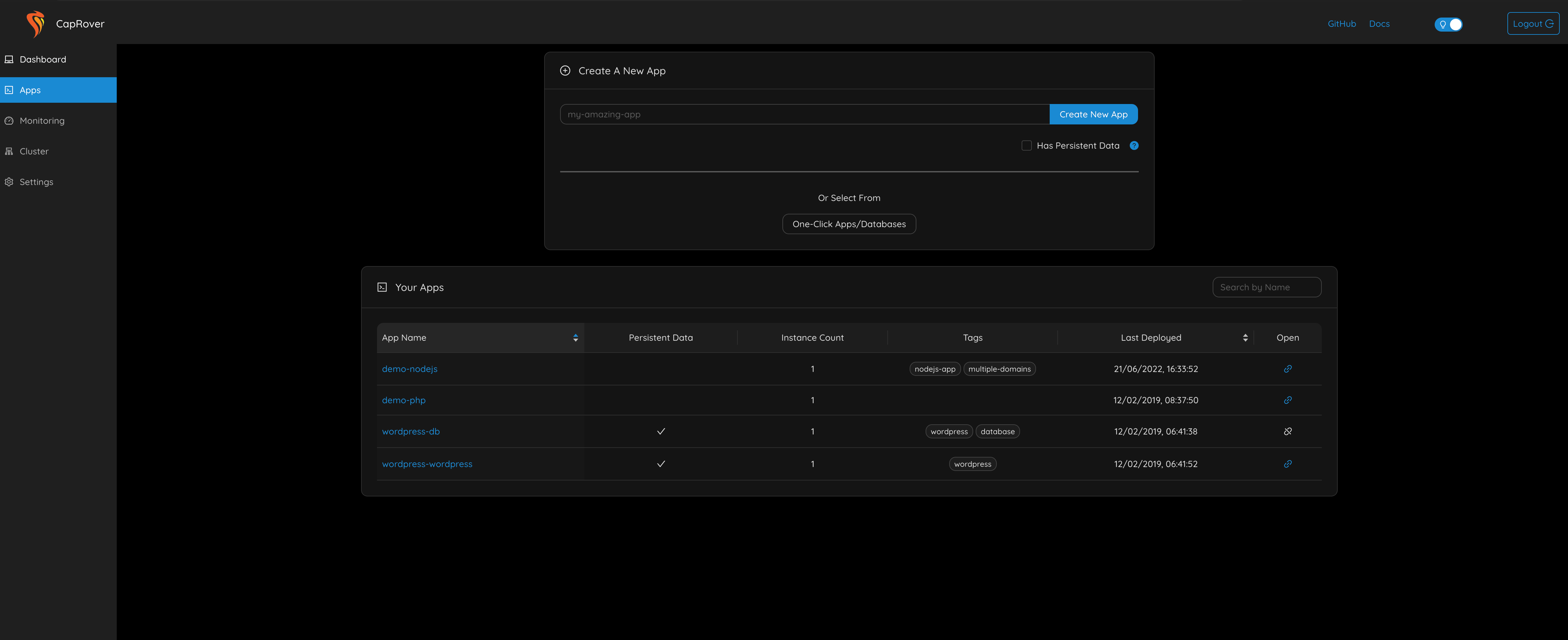
CapRover is a platform that lets you deploy and manage your web applications and databases with ease and convenience. It is a free and open source PaaS (Platform as a Service) that uses Docker, nginx, Let’s Encrypt, and NetData under the hood to provide a fast and robust service. You can use CapRover to deploy apps in any language, such as Node.js, Python, PHP, Ruby, and more, and also install databases like MySQL, MongoDB, Postgres, and more with just a few clicks. You can also use CapRover to secure your apps with free SSL certificates, integrate with Cloudflare, customize your nginx settings, monitor your server performance, and scale your apps with Docker Swarm. You can use CapRover’s web GUI, CLI, or webhooks to manage your apps and databases. CapRover is a great solution for developers who want to save time and money on deploying and hosting their web projects.
CapRover Features:
- It lets you deploy apps and databases of any language that can be packaged as a Docker image, such as Node.js, Python, PHP, Ruby, and more
- It secures your services over HTTPS for free with Let’s Encrypt SSL certificates and automatically redirects HTTP to HTTPS
- It offers one-click apps, such as WordPress, MongoDB, MySQL, Postgres, and more, that can be deployed in seconds
- It supports multiple ways to deploy apps, such as uploading your source from the dashboard, using the command line caprover deploy, or using webhooks and building upon git push
- It has a user-friendly interface with a dashboard that shows server information and resource usage, and a file manager that allows you to upload, edit, delete, and manage files and folders
- It has advanced security features, such as firewall, IP and bot blocking, basic authentication, two-factor authentication
Conclusions
To sum up, choosing a server panel to host your programming projects doesn’t have to be a daunting task, especially with the array of top-tier self-hosted server panels available today. Each panel has its distinct features and benefits, making it easier for you to find one tailored to meet your specific needs.
Quality server panels like CloudPanel and CyberPanel have set a high bar with features like resource-efficient usage, auto SSL, and high-performance stacks. They are particularly great for running PHP applications, offering unmatched control over your hosting environment.
If you are on the lookout for Heroku or Netlify alternatives for CI/CD and Docker apps, then server panels like EasyPanel, Coolify, and CapRover have got you covered. Blocks or circular text indicating certain aspects like one-click apps installation, Docker swarm as a service, free SSL, and WebSocket support make these panels an excellent choice.
Related Posts
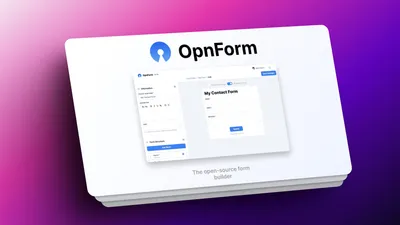
OpnForm Free Open Source Form Builder Tool
OpnForm is an open-source free form builder tool can help host forms online.

Sink Install: Free Self Hosted Link Shortener
Learn how to deploy Sink and open source link shortener with analytics.
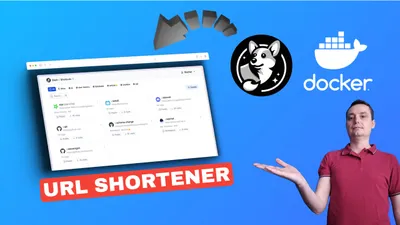
How to Deploy Your Link Shortener with Slash, Docker, and Dockge
Learn how to deploy your link shortener with Slash, Docker, and Dockge, and enjoy the benefits of smart link management and easy application deployment.